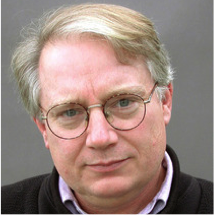Why Care About Ocean Salinity?

Professor
University of Washington
University of Washington
Dr. Riser's primary interests include the ocean's role in climate; circulation of the ocean and ocean/atmosphere/ice interactions through direct observations; and the interactions between physical aspects of circulation and the biogeochemical properties of the ocean.
Webinar Clip
What does it mean to have a "salty" ocean and why does it matter if salinity varies from place to place? In this video, Dr. Riser explains to viewers that ocean salinity is a mirror to the global water cycle. Salinity also plays a role in determining seawater density, which can determine where water travels throughout the oceans. Full webinar: From Skin to Deep
Click here for a transcript of this clip (PDF, 50.6 KB). |
Resources
Applicable Science Standards
 Asking Questions and Defining Problems. A practice of science is to ask and refine questions that lead to descriptions and explanations of how the natural and designed world(s) works and which can be empirically tested.
Asking Questions and Defining Problems. A practice of science is to ask and refine questions that lead to descriptions and explanations of how the natural and designed world(s) works and which can be empirically tested. Constructing Explanations and Designing Solutions. The goal of science is the construction of theories that provide explanatory accounts of the world. A theory becomes accepted when it has multiple lines of empirical evidence and greater explanatory power of phenomena than previous theories.
Constructing Explanations and Designing Solutions. The goal of science is the construction of theories that provide explanatory accounts of the world. A theory becomes accepted when it has multiple lines of empirical evidence and greater explanatory power of phenomena than previous theories. Obtaining, Evaluating, and Communicating Information. Scientists and engineers must be able to communicate clearly and persuasively the ideas and methods they generate. Critiquing and communicating ideas individually and in groups is a critical professional activity.
Obtaining, Evaluating, and Communicating Information. Scientists and engineers must be able to communicate clearly and persuasively the ideas and methods they generate. Critiquing and communicating ideas individually and in groups is a critical professional activity.